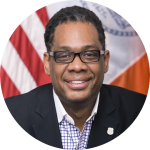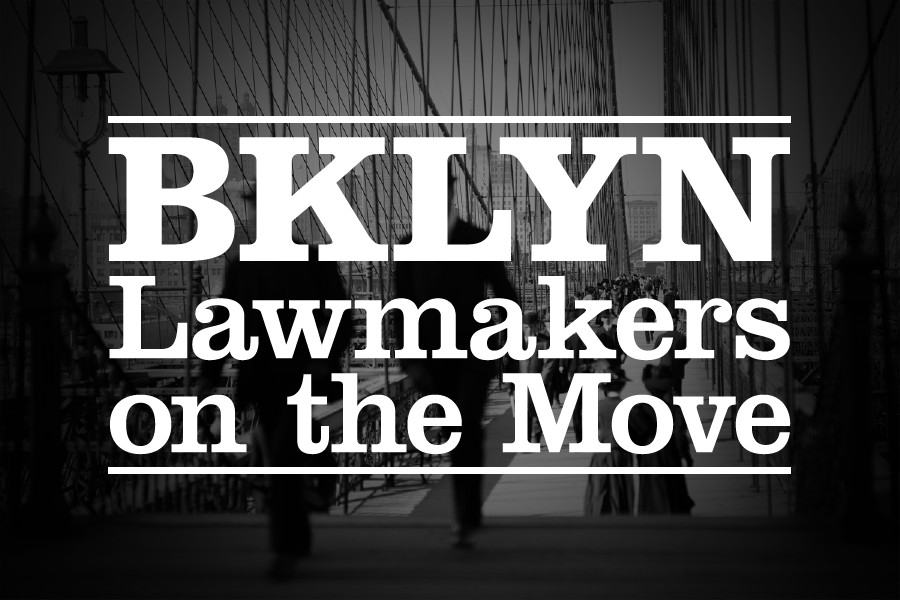Schumer Pushes Senate on Bill to End Robocalls
U.S. Senator Charles Schumer (D-NY) revealed last week that he is working on a deal that would deliver a Senate vote for the Telephone Robocall Abuse Criminal Enforcement and Deterrence (TRACED) Act. Schumer said this compromise bill, which is based on legislation that passed the House and Senate earlier this year, has just passed the House in a sweeping, bipartisan vote of 417-3 and that it can become law if the Senate acts. Schumer explained why the TRACED Act works as he made the case for an ASAP vote, citing this holiday season as the time to give Americans—and New Yorkers—the silent night(s) they deserve.

“From every corner of New York there is one thing everyone can agree upon, and that is the enduring hope that the robocalls stop,” said Schumer. “Americans are desperate for a ‘silent night’ free of robocalls this holiday season and beyond and it looks like, if the Senate acts, they’ll get their wish.”
In the month of November alone, the average New York City resident and the average Long Islander, were inundated with around 9 robos a day, more than 164 million calls altogether. That’s more than 150 million calls across the city and almost 14 million on Long Island in just a single month, which could become more frequent as the holidays approach.
Schumer said the federal government must do everything possible to make sure robocalls stop increasing year after year. Despite federal ‘Do Not Call’ rules, scammers have developed more creative ways to go around the system, meaning, hundreds of thousands of individuals continue to receive unwanted spam calls. According to the Federal Trade Commission (FTC), unwanted and illegal robocalls are the FTC’s number-one complaint category, with more than 3.7 million complaints filed in 2018.
“It’s eye-popping, it’s annoying, and it’s got to stop,” added Schumer. “And I am going to work hard to dial up a vote to kill these robocalls in the Senate before the year ends, so we don’t have to start all over again in the New Year.”
Elected Officials and Community Leaders Sign School Lease




Council Member Farah Louis (D-Flatbush, East Flatbush, Midwood, Marine Park, Flatlands, Kensington), Assemblymember Simcha Eichenstein (D-Borough Park, Midwood), Assemblymember Rodneyse Bichotte (D-Flatbush, East Flatbush, Midwood, Ditmas Park), Council Member Kalman Yeger (D-Bensonhurst, Borough Park, Midwood, Ocean Parkway), Council Member Robert Cornegy (D-Bedford Stuyvesant, Northern Crown Heights), Council Member Justin Brannan (D-Bay Ridge, Dyker Heights, Bensonhurst, Bath Beach) and representatives from Urban Dove Charter School, East Midwood Jewish Center, and Flatbush Jewish communal leadership want to steer the conversation away from stereotypes and misconceptions. They released a statement last week explaining that Urban Dove Charter School and East Midwood Jewish Center were able to come to an agreement regarding the school lease.
They wrote: “With a signed lease in place, we understand that the Urban Dove Charter School has the legal right to transition into the East Midwood Jewish Center. In good faith, we met to discuss the concerns that were expressed – both in support and opposition – which included the preservation of the longstanding Jewish Day School and synagogue, racial prejudice, and the addition of charter schools, in a neighborhood scarce for educational space.”
“Children are our utmost priority. Our biggest concern is to preserve their rights to a quality education in a safe environment that is conducive to learning.”
“The disparaging comments by some regarding the school’s student body do not reflect what we collectively believe and undermine who we are as a community that has a brilliantly diverse population. They are baseless and detrimental to the mental, emotional and social well-being of these students who look forward to continuing their academic progress in a new space that they can truly call their own. It is a disservice to belittle the very individuals we ought to engage, inspire and empower to achieve.”
Rose and Schumer Advocate for Fentanyl Sanctions Act
U.S. Rep. Max Rose (D-South Brooklyn, Staten Island) and U.S. Senate Senator Charles Schumer (D-NY) announced last week that following their push, the bipartisan Fentanyl Sanctions Act has been included in the National Defense Authorization Act (NDAA) for Fiscal Year 2020, which is expected to pass early this week.

“When it comes to keeping our kids safe and our streets free from fentanyl and fentanyl-laced heroin, there’s no place for politics and partisanship,” said Rose. “The Fentanyl Sanctions Act will finally put these Chinese manufacturers on notice that the days of flooding our streets with fentanyl without consequence are over. Proud to see this moving to the President’s desk to be signed into law.”
The bill will hold China and other countries accountable for their commitments to crack down on producers and traffickers of fentanyl and other deadly synthetic opioids, pushing China’s government to honor their commitment to enforcing new laws declaring all fentanyl derivatives illegal. The legislation will provide the U.S. government with more tools and resources to sanction illicit traffickers from China, Mexico, and other countries—a critical effort, in light of the steep rise in devastating fentanyl overdose deaths.
“I’ve said it before and I’ll say it again, we must hold China, currently the world’s largest producer of illicit fentanyl, accountable for its role in the trade of this deadly drug. Our bipartisan sanctions bill will do just that,” said Schumer. “Our bill gives our government the tools to enforce sanctions on nations, like China, that are illegally trafficking, and also provides new tools for law enforcement to go after opioid traffickers.”
The legislation would require new sanctions on drug manufacturers in China who knowingly provide synthetic opioids to traffickers, provide waivers to countries that take sufficient action to implement and enforce regulations on synthetic opioid production, authorize new funding to law enforcement and intelligence agencies, and establish a Commission on Synthetic Opioid Trafficking to monitor U.S. efforts and report on how to more effectively combat the flow of synthetic opioids from China, Mexico and elsewhere.
BP Adams, Cumbo, Johnson Unveil New Bike Hub at Atlantic Terminal
Brooklyn Borough President Eric Adams joined Oonee, NYC Council Majority Leader Laurie Cumbo (D-Fort Greene, Clinton Hill, Crown Heights, Prospect Heights, Bedford Stuyvesant), NYC Council Speaker Corey Johnson (D-Manhattan), and transportation advocates to unveil Oonee, the first secure parking and service hub for bicycles and scooters in New York City. The first permanent installation is located at Atlantic Terminal.

“As an avid cyclist myself, I know that one of the greatest challenges of getting around our borough and our city on two wheels is parking your bike securely. The arrival of the Oonee Pod heralds a new era in New York City cycling, and it is fitting that its first permanent kiosk is located in the heart of Brooklyn, the cycling capital of New York City. This exciting new innovation must be coupled with commitments from policymakers and local communities to make our streets safer for all,” said Adams.
Cycling throughout the five boroughs, Brooklyn in particular, is growing rapidly. A report from the New York City Department of Transportation (DOT) released in May of this year found that as of 2017, according to rolling three-year averages, there were 20,771 cyclist commuters in Brooklyn, out of a total of 48,797 cyclist commuters citywide. The same report found that between 2012 and 2017, the number of people cycling to work in New York City increased by 55 percent. The report estimates, 793,000 adult New Yorkers regularly ride bicycles.

“As we create a more sustainable future for New York City, I am thrilled for the opening of Oonee, the city’s first permanent parking station and service hub for bikes and scooters here at Atlantic Terminal. New Yorkers should feel comfortable and confident getting around the city, and Oonee’s next level innovation has stepped outside the box creating parking access for cyclists. The modular kiosk will create parking for commuters in all lanes, a valued commodity on our streets,” said Cumbo.
“As we encourage more New Yorkers to cycle, we need to make sure that it’s not only safe for them to ride on the street, but that it’s safe for them to park bikes. Bike parking must be part of the conversation about transit infrastructure,” said Speaker Corey Johnson.
Oonee is a modular cycle parking facility that can be built to a range of sizes and configurations. A typical kiosk can house between 20 and 60 bicycles. The kiosks are designed to enhance public spaces through increased lighting, public seating, and street beautification features, among other things. First debuted at the Brooklyn Navy Yard last year, the facilities allow area cyclists to park their bikes or scooters for free or an affordable low monthly rate. In addition, each kiosk is equipped with a smart access control system for easy entry, as well as charging, air pumps for tires, and other amenities.










